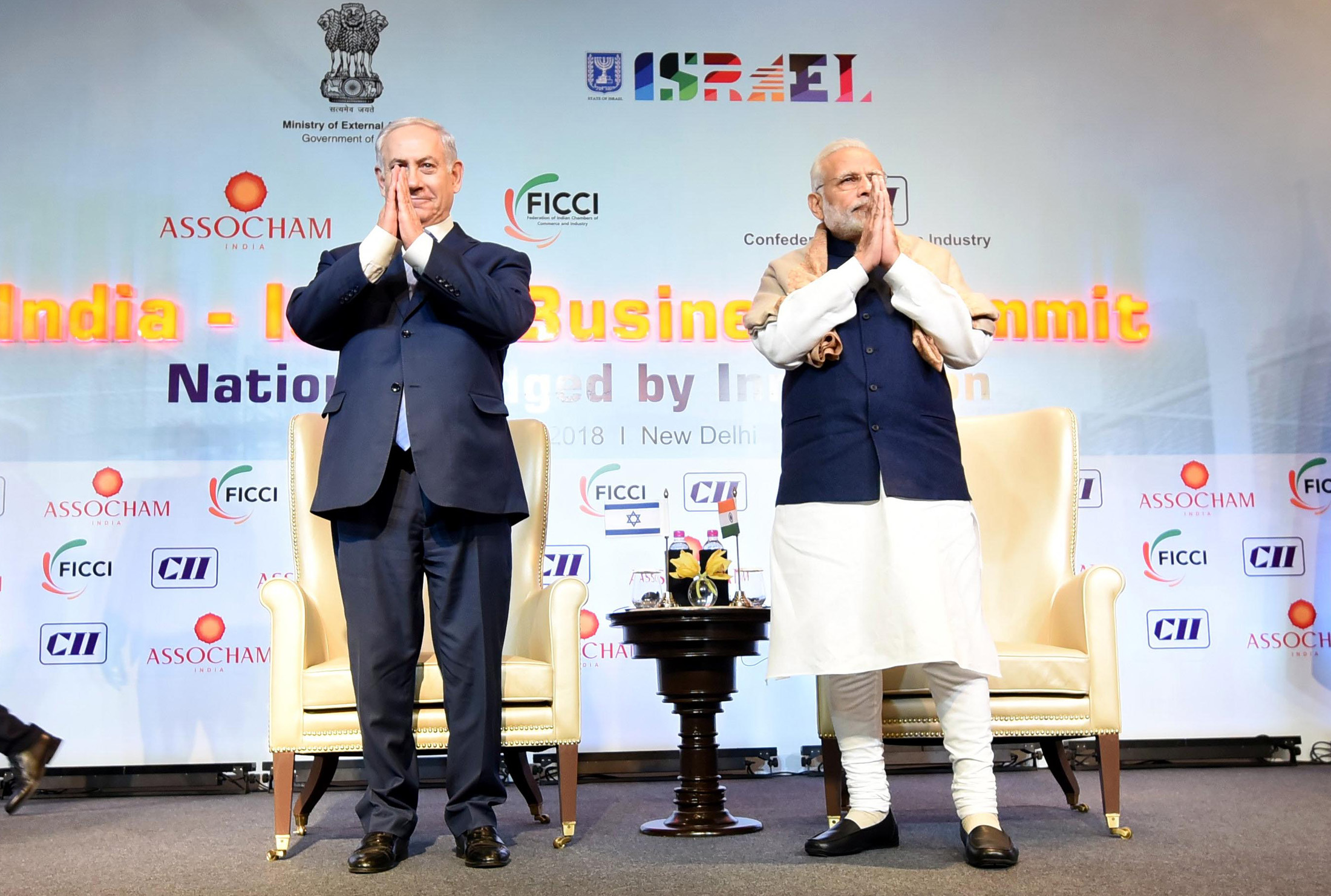IDR Blog
India-Israel 'alliance' is good for both countries
Relations between the two major democracies India and Israel has entered a phase of full normalization following the visit of Israeli Prime Minister Benjamin Netanyahu to India from January 14-19, 2018.
The two countries decided to exchange prime ministerial level visits to commemorate 25 years of bilateral diplomatic relations. Narendra Modi became the first Indian prime minister to visit Israel, from July 4-6, 2017, and Netanyahu became only the second Israeli Prime Minister to visit India, after Ariel Sharon in 2003.
It was also symbolic reaffirmation of the underlying importance of the relationship that Netanyahu became the first high-level foreign dignitary to visit India in 2018. The visit was marked by close personal chemistry between Modi and Netanyahu. In Gujarat, both leaders visited Sabarmati Ashram together and were also seen together flying kites on the Sabarmati riverfront.
Developments prior to the January visit, such as India’s vote on Jerusalem at the UN General Assembly, its relations with Iran and its position on the Palestinian cause, highlighted that relations between the two are not free from challenges. India’s deepening ties with Israel has not led to it giving up its stand on Palestine. India’s position on the two-state solution and its vision of West Asia is quite different from Israel.
Unlike Israel, India is not in favour of regime change in Syria. India has repeatedly reiterated its commitment towards the Palestinian cause and, during the meeting with his Israeli counterpart Modi cleared India’s position on the status of Jerusalem and on Palestine.
Balancing its ties with other countries of West Asia is another challenge for India. Till now, India has vigilantly balanced its policy with the other actors in the region. This was reflected in the India-Iran $ 2 billion Chabahar port and rail link and in Modi’s decision to visit Palestine, Oman and UAE in February 2018. Netanyahu’s India visit attracted limited outcry from regional Arab states.
During the visit, India and Israel strengthened conventional areas of bilateral partnership such as agriculture, science and technology, and security and agreed to increase Centres of Excellence in the field of agriculture by utilising access to sophisticated Israeli practices and technology.
Besides conventional areas, they sought to expand cooperation in less explored areas like oil & gas, cyber security, films, and start-ups. They signed nine MoUs and agreements on subjects ranging from cyber security to space, oil and gas, investments, solar thermal technologies, air transport, film-co-production, homeopathic medicine and ayurveda.
Netanyahu attended the 2nd India Israel CEO Forum Meeting in New Delhi and launched an industrial R&D and Technology innovation fund, a $40 million innovation fund to enhance the knowledge base of Indian technology industry. The Joint Working Groups on Homeland and Public Security met in February.
While delivering the keynote address at the Raisina Dialogue on January 16, 2018, Netanyahu highlighted the common security challenges and need to strengthen the “India-Israel alliance”. The use of the term ‘alliance’ indicated their resolve for deepening engagement.
In the cultural arena, Netanyahu met with personalities from Bollywood in Mumbai, which could promote India’s soft power influence in the region. The decision was taken to open an Indian cultural centre in Israel to acquaint its citizens with Indian culture. The popularity of ayurveda in Israel has opened prospects for sharing knowledge and a MoU was signed during this visit.
During the visit, the importance of Israel for India was broadly highlighted but, realistically, warm relations with a country the size of India is critical for Israel. India is an influential power and a major player in international politics. Warm relations with India will potentially unlock opportunities to boost economic cooperation with other South Asian states, especially those that do not enjoy “diplomatic relations with Israel, such as Bangladesh, whose annual trade with India is about $6.6 billion”.
The visit has opened the doors for broader India-Israel cooperation but the biggest challenge for the both will be to take bilateral relations to a higher level. If Israel is interested in elevating the relationship to new heights, it will have to think out of the box. It will have to understand that India is a mammoth-sized country, a democracy of 1.324 billion people and plan accordingly.
Israel has technological solutions to some of India’s problems and India has a huge market and capital that is required for Israeli technology to thrive. If channelized in the right direction, then both the countries could gain a lot from each other.
Courtesy: First Published on www.southasiamonitor.org





